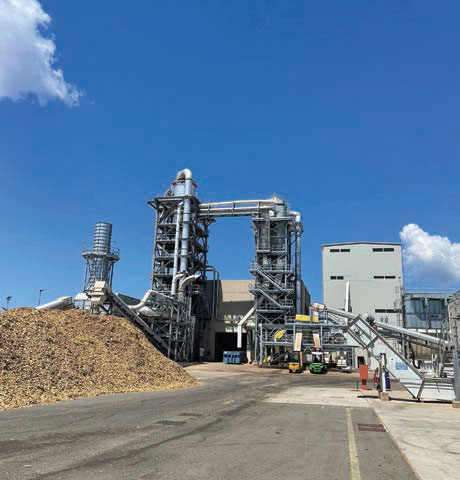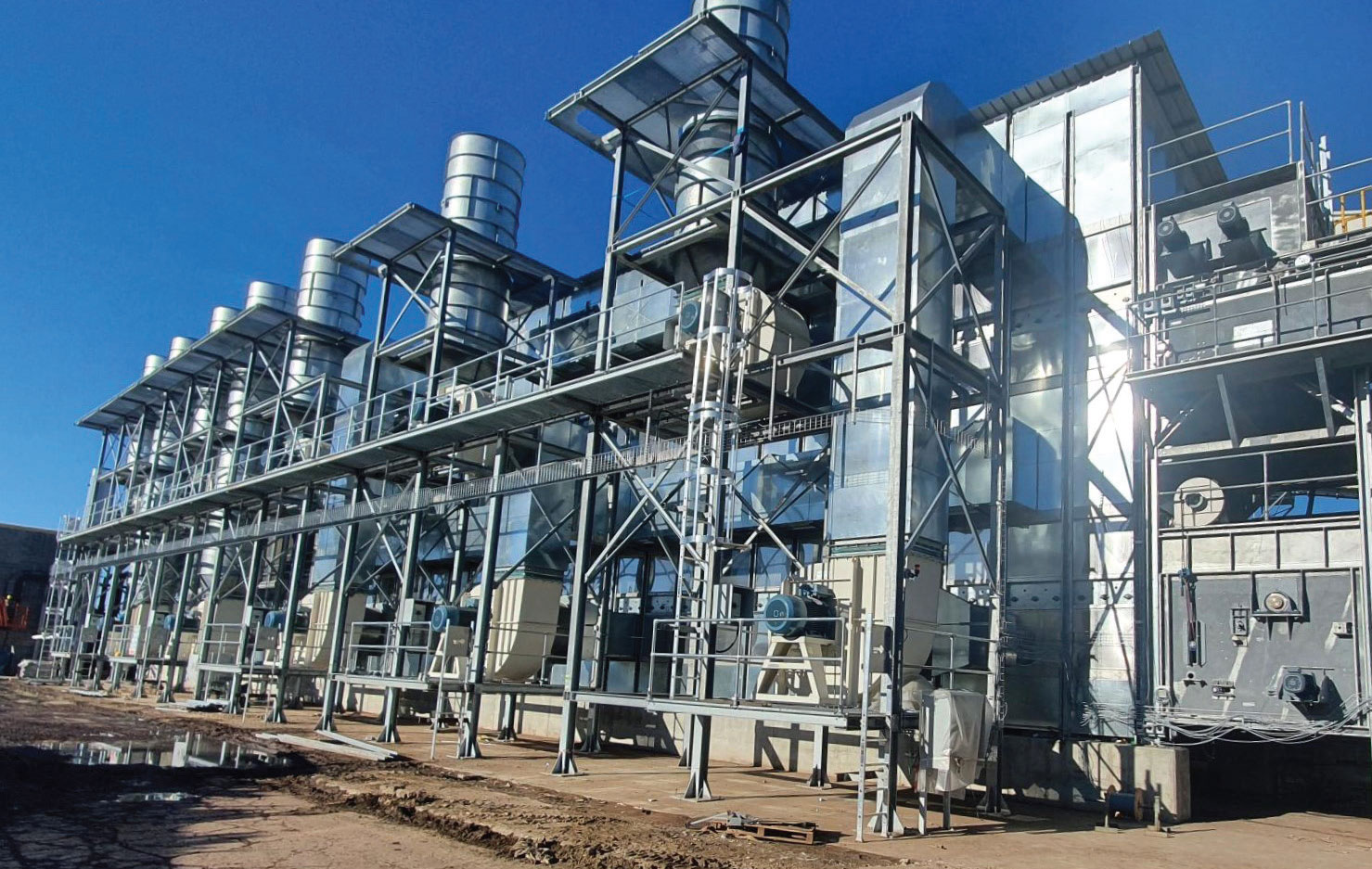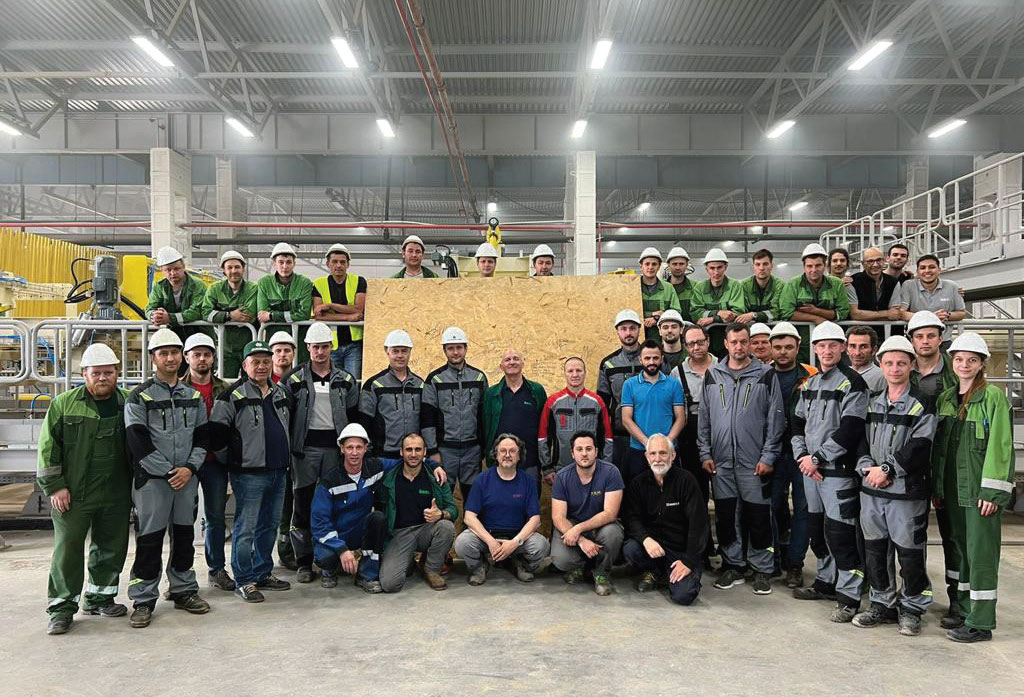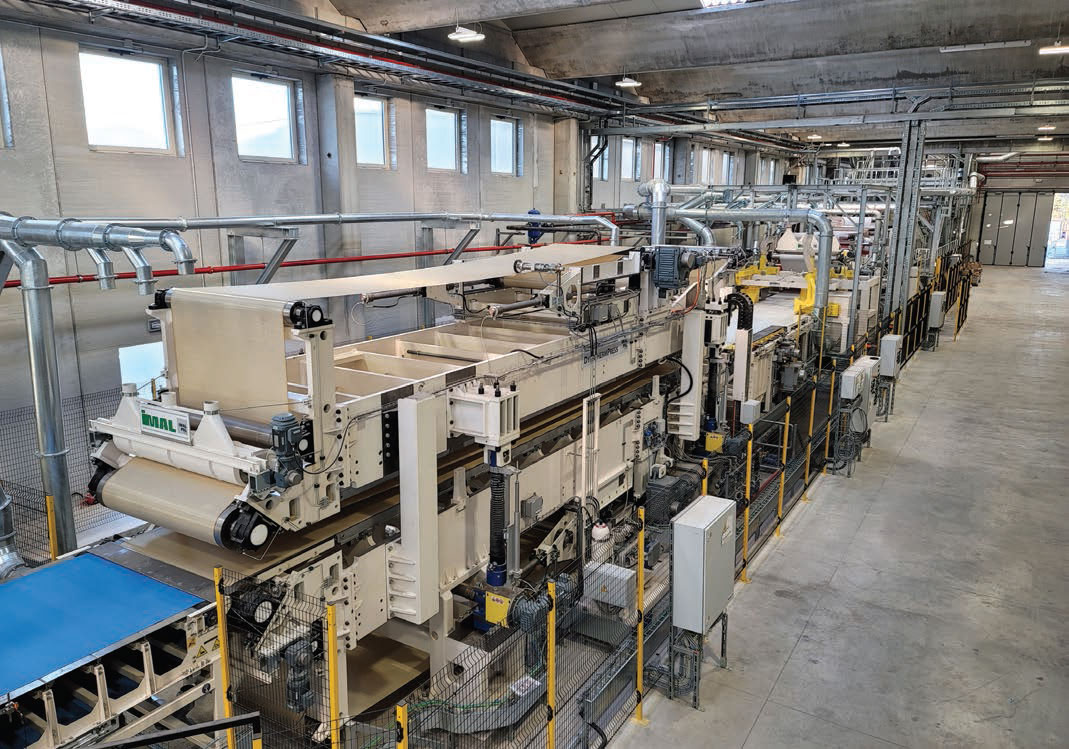Innovating the future
19 September 2022IMAL PAL Group has completed the turnkey installation of a wood fibre insulation plant in Sardinia and is progressing with a unique wood fibre moulded pallet plant installation in Italy, reports Stephen Powney.
This year’s WBPI Focus on Italy: Part 1 starts with an update from the IMAL PAL Group, a leading Italy-based supplier of wood-based panels production plants.
We caught up with group chief executive officer Loris Zanasi recently, speaking from the company’s Modena base about completed and ongoing projects in the international wood-based panels sector.
Our conversation quickly turned to a project close to home for the company – namely Sardinia.
In May, the IMAL PAL Group completed the turnkey installation of a complete wood fibre insulation board plant for the company Renovo-Bioedil.
According to Mr Zanasi, the project has several unique features and is already proving a magnet for interested parties globally to visit, with the expectation that several further orders will follow for similar plants.
“It started running a couple of months ago and is quite different from other wood fibre insulation board plants,” he said. Innovations include the press cycle and gluing process, the latter of which uses 100% PMDI resin with a different distribution system.
“The glue distribution is a completely different method compared to others, with high pressure distribution rather than compressed air,” Mr Zanasi added.
“This particular type of resin when sprayed by compressed air can lead to mini drops in the atmosphere which can be breathed in. “This does not happen with the IMAL high pressure system because after 200-300mm the resin loses speed and remains in the fibre. When compressed air is used on the other hand, with a constant addition of a volume of gas, the drops continue to stray into the atmosphere with the risk of being breathed in.
“So we have applied the high pressure distribution method used previously in the MDF sector. We analysed and experimented in MDF and then took the experience over to this wood fibre insulation board application as well.”
The Bioedil plant is also unique because the composition of the boards includes a small amount of natural cork – something which was requested by local authorities in Sardinia due to the abundance of cork on the island.
Sardinia and Portugal are two of the leading sources for wine cork production and the waste from the manufacturing process creates a plentiful supply of local raw material, which can be milled and used as part of the wood fibre feedstock for Bioedil’s wood fibre insulation boards.
The press is approximately 9m x 1.5m and works with steam injection and hot platen technology to complete the curing process.
A 1.2m x 1.2m board is produced, with a saw cutting the length in half for a finished size of 1.2 x 600mm. The reason why the press is so wide is to accommodate a tongue and groove board product.
The product, produced in density ranges from 80 to 240kg/m3, is aimed at roof and wall applications to help insulate against heat and cold. Such products are today viewed as very important for saving energy, with mandatory requirements becoming increasingly common in countries – including Italy – for all new built homes to incorporate high performance insulation products.
Mr Zanasi said another highlight of the plant is in the area of plant emissions. He said that IMAL PAL Group has developed a machine to collect pollutant emissions from the various manufacturing processes and filter them to effectively reduce harmful emissions to a zero level, without using an expensive electro-filter.
This was also a big requirement from the Sardinian authorities, which are very careful to reduce pollutant emissions in the region. “The new machine collects all the fibre pollutant emissions around the factory,” continued Mr Zanasi.
“From the forming machines we have installed a 600mm-wide pipe to collect the exhaust from the filter to the new machine.
Also, the outlet from the fibre dryer, rather than going to the atmosphere, also goes to the same machine, where all emissions are filtered.”
Mr Zanasi said the combination of technologies employed at the plant had created great interest from other customers and he believes several large new orders for similar plants will be signed.
“We have had a queue of customers coming over to view the plant from North America and Europe. There is quite high interest in this plant around the world.
“We have several offers pending for this type of plant and I am quite positive we will close a deal by the end of the year.”
GLOBAL PROJECTS
The subject of Russia came up in our conversation as the country has been a big source of wood panel industry investment in recent years, but the onset of the Ukraine conflict and subsequent trade embargo on Russia has changed the picture.
The IMAL PAL Group managed to complete a new 250,000m3 capacity OSB plant for Latat in Siberia, Russia earlier this year. It closed the deal in 2021 and shipped all the plant equipment, including the 2650mm x 30m continuous press and IMAL PAL strander, before the start of the Ukraine conflict. By the time the war started the plant had been almost fully erected.
The project took 10 months between start of erection and commissioning, with all customer payments completed.
“The customer was very professional and IMAL PAL respected its agreement,” Mr Zanasi said.
Mr Zanasi said it still received expressions of interest from Russia but it was not, of course, able to do further business in the country for the foreseeable future.
Elsewhere in the world, the group has reported good sales of its systems, including belt dryers, gluing systems, the Dynasteam steam injection system, knife ring flakers, laboratory systems and other technology.
The belt dryer technology is definitely an area of focus for many panel and wood product manufacturers. A system was recently supplied to pallet block producer Eire Bloc in Ireland.
The new belt dryer replaced an existing drum dryer, lowering emissions to below 5mg per cubic metre of air, compared to 150mg previously. The lower operating temperature of the belt dryer is a key factor in its performance.
IMAL PAL Group has received an order from Swiss Krono for two big belt dryers, while Kastamonu Entegre has also ordered two belt dryers with a capacity of over 50 tonnes per hour at its PB facilities in Kastamonu city.
“We are very successful with the belt dryers,” added Mr Zanazi.
“At the moment we are building six and we have more orders coming in, so we are expecting a big number of new orders.
“We have the continuous press, we have the gluing, a forming machine, wood preparation, chipper, flaker and strander and all the equipment for the wood-based panels plant, only the dryers were missing.
So we have completed the full process for the production of boards and are able to supply the A-Z of the complete plant, as well as a full set of online controls and laboratory equipment and full automation of plants.
“But we want to keep pushing, every day is not the finish, it is the start.”
To that end, IMAL PAL Group has booked the same size stand for Ligna 2023 as it did at the last show in 2019. This amounts to 1,000m2 at the Hannover Messe and represents a significant investment.
Elsewhere globally, there are negotiations for an OSB line in South America, as well as big project discussions in India and Indonesia. Recent projects in Asia have included gluing and steam injection systems for Greenlam and Merino in India.
A new pallet block line is almost ready for commissioning in Dubai, while two particleboard projects in Europe are also under discussion. There is also expected to be exciting news of a complete OSB and particleboard plant contract unveiled soon.
WOOD FIBRE MOULDED PALLETS
WBPI previously signalled about IMAL PAL Group’s development of new technology to produce wood fibre moulded pallets.
The first plant using this technology is now being built and will be operated by waste management solutions provider Iren at Vercelli, near Milan.
It is being described as the first pallet manufacturing plant of its kind, with Europallets being produced from fully moulded recycled wood fibre. The plant uses 100,000 tonnes of recycled wood annually.
“It is so fantastic the shape of the pallet we have designed because it is totally different to everything on the market,” explained Mr Zanasi.
Benefits, he explained, included it being waterproof, being able to run on a roller conveyor, a 22kg lighter weight than a standard Europallet, a capacity to hold up to 1,500kg and a faster production process than standard wood pallets.
The plant features one double mould pallet press (fully designed by the IMAL team) and four extrusion lines to produce pallet blocks.
“Our target in the future is to supply three double moulded presses in order to produce 1 million pallets per year in one site,” said Mr Zanasi.
The production cost per pallet of using 100% recycled wood is estimated at about one-third of the current price of Europallets.
In summary, IMAL PAL Group has delivered many interesting projects worldwide and there are good prospects for it supplying further large contracts in the coming year, although Mr Zanasi agreed that some of the wood-based panels market dynamics had changed.
He has detected a drop in panel demand around Europe, but pointed to the excellent financial results of customers in recent years as positioning them well for the future.
Maintaining a good price of product is proving important to customers and ensuring production volumes match existing demand.



